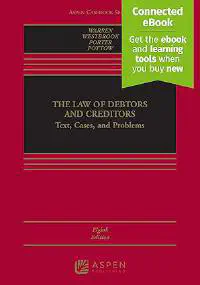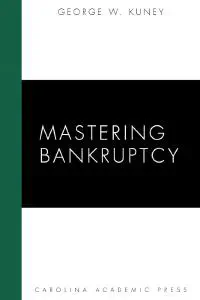Overview
Bankruptcy is a legal process initiated by an individual or business that is unable to repay their debts to creditors. In most jurisdictions, it is imposed by a court order, often initiated by the debtor. Bankruptcy is not just a financial status—it provides a legal pathway to resolve insolvency, typically through debt elimination or restructuring.
At its core, bankruptcy addresses unmanageable debt, but the process involves more than simply cancelling what’s owed. In the United States, different types of bankruptcy—known as “chapters”—offer specific solutions. Chapter 7, for example, requires the liquidation of non-exempt assets to repay creditors, while Chapter 11 and Chapter 13 allow for reorganization and structured repayment plans.
The primary goal of bankruptcy is to discharge certain debts, relieving the debtor from the legal obligation to pay them. However, not all debts are dischargeable. Obligations like child support, alimony, most student loans, and some taxes typically remain even after bankruptcy.
While often viewed negatively, bankruptcy can offer critical relief to individuals or businesses in financial crisis. It can halt collection efforts, erase qualifying debt, and provide breathing room to rebuild financially. Still, the process has long-term consequences, such as a reduced credit score and limited access to future credit.
In conclusion, bankruptcy is a powerful legal tool for debt relief, but it carries serious financial implications. Consulting with a legal or financial professional is essential to fully understand the options, risks, and outcomes before making the decision to file.
In Context
Historically, these are the most common reasons for filing for bankruptcy:
• job loss, followed by an inability to find work that pays nearly as well
• medical expenses that aren’t reimbursed by insurance or government programs
• divorce or legal separation, and
• small business failures.
Once a financial catastrophe strikes, many of us wind up taking on significant debt just to weather the storm. If we saved enough, maybe we’d be ready for these unexpected twists and turns. But, for a variety of reasons, many of us aren’t prepared.
Bankruptcy is in place to provide a financial safety net. It’s based on forgiveness rather than retribution and is a truly worthy part of our legal system. It helps keep families together, frees up income and resources for children, reduces suicide rates, and keeps the homeless population from growing even more extensive. In short, bankruptcy provides a chance for a fresh start and a renewed, positive outlook on life.
Despite its many benefits, bankruptcy also has disadvantages—economically, emotionally, and in terms of your future credit rating. The bankruptcy process can get intrusive. As part of your public filing, you must disclose your financial activities during the previous year or two—sometimes more—as well as your income, debts, and current property holdings.
Bankruptcy helps people who can no longer pay their creditors get a fresh start by liquidating non-exempt assets to pay their debts or by creating a repayment plan. Bankruptcy laws also protect troubled businesses and provide for orderly distributions to business creditors through reorganization or liquidation.
Bankruptcy is in place to provide a financial safety net. It’s based on forgiveness rather than retribution and is a truly worthy part of our legal system. It helps keep families together, frees up income and resources for children, reduces suicide rates, and keeps the homeless population from growing even more extensive. In short, bankruptcy provides a chance for a fresh start and a renewed, positive outlook on life.
Despite its many benefits, bankruptcy also has disadvantages—economically, emotionally, and in terms of your future credit rating. The bankruptcy process can get intrusive. As part of your public filing, you must disclose your financial activities during the previous year or two—sometimes more—as well as your income, debts, and current property holdings.

Charles Warren began his 1935 history of American bankruptcy law with the words: “Bankruptcy is a gloomy and depressing subject.” We reject that proposition. The economic pathology that leads to bankruptcy may indeed be depressing, but bankruptcy itself is the process of healing and restoration. Bankruptcy is an integral part of a free market system that permits individuals and businesses to fail; a strong bankruptcy system undergirds a market-based economy. Bankruptcy lawyers and judges help individuals and businesses pick up the pieces, right the wrongs, and begin anew when old approaches have failed. Bankruptcy is about the future. It is the search for economic healing: a treatment of financial wounds that is less painful and more permanent. It is good work, the work of the healer, and there is much of it to be done.
Bankruptcy is in place to provide a financial safety net. It’s based on forgiveness rather than retribution and is a truly worthy part of our legal system. It helps keep families together, frees up income and resources for children, reduces suicide rates, and keeps the homeless population from growing even more extensive. In short, bankruptcy provides a chance for a fresh start and a renewed, positive outlook on life.
Despite its many benefits, bankruptcy also has disadvantages—economically, emotionally, and in terms of your future credit rating. The bankruptcy process can get intrusive. As part of your public filing, you must disclose your financial activities during the previous year or two—sometimes more—as well as your income, debts, and current property holdings.





